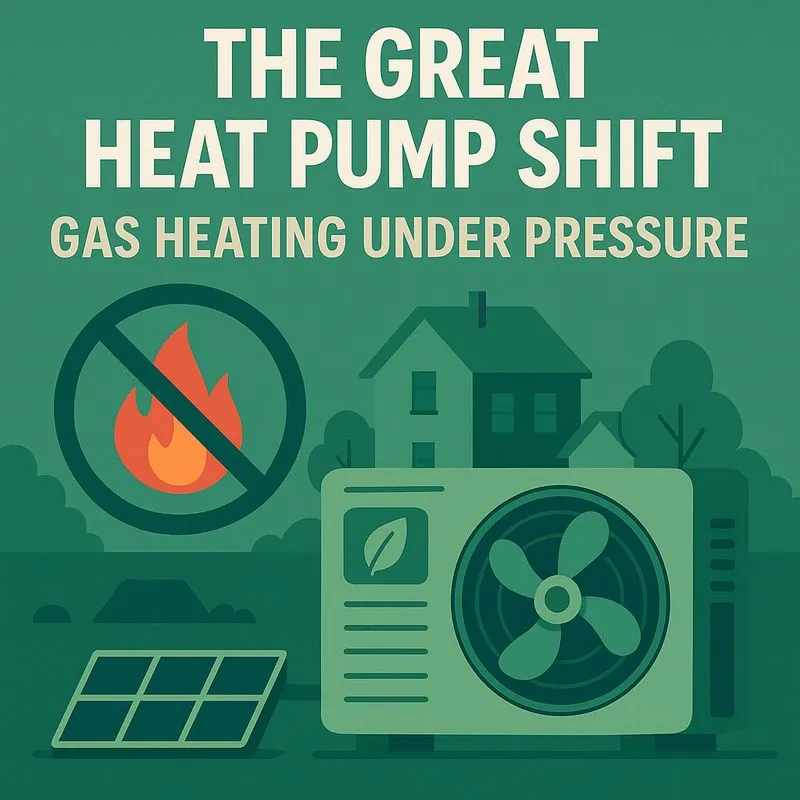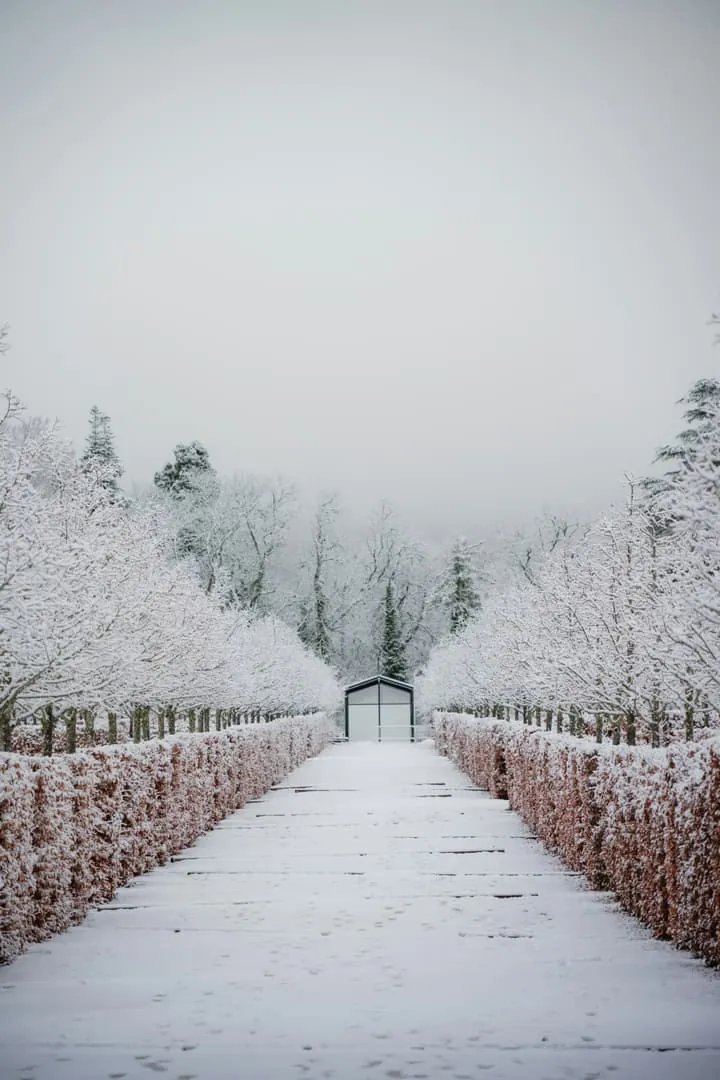
The Great Heat Pump Shift: Why 2026 Will Be the Year Europe Goes All-In on Clean Heating
For four months, one trend has dominated Google searches across Europe: heat pumps, subsidies and new 2026 rules. This is no coincidence. Starting January 2026, the EU is launching the biggest heating transition in its history — phasing out gas boilers, massively supporting heat pumps, boosting insulation requirements and reshaping winter bills for millions of households.
1. Why Europe chose heat pumps as the future of heating
For the past few years, Europe has been hit by a combination of gas price shocks, geopolitical tensions and growing climate commitments. Heat pumps offer a way out of this triangle: they cut gas dependency, use electricity that can increasingly come from renewables and deliver major efficiency gains.
Modern heat pumps typically allow:
- 60–75 % lower energy use for heating compared with old gas or oil boilers;
- a massive reduction in imported fossil fuels;
- a clear path towards the EU’s target of a 55 % emissions cut by 2030.
This is also why searches around “heat pump 2026 rules” and “heating subsidies 2026” are exploding in Google Trends and Search Console.
Technologies have improved fast since the early 2010s. New-generation models are now designed to operate:
- down to approximately −20 °C in many climates;
- with much lower noise levels than older outdoor units;
- with seasonal performance factors (SCOP) often above 4.2;
- in hybrid configurations where a small boiler or electric backup only kicks in on the coldest days.
If you want the wider policy background behind this choice, see also 2026 energy rules in Europe for homeowners and Eco heating 2026: the sustainable trends to watch.
2. 2026: the beginning of the end for gas boilers in 19 countries
A key pillar of the 2026 shift is the progressive phase-out of new fossil boilers. Under the revised rules, 19 European countries plan to:
- ban the installation of new gas boilers in many new buildings;
- stop public subsidies for fossil-only systems;
- prioritise electric and geothermal solutions in renovation roadmaps.
This does not mean that every existing boiler will be disconnected overnight. But it does mean that each time a system reaches the end of its life, the economic signal will clearly point towards a heat pump or another low-carbon alternative.
For a country-by-country view of how this is playing out, cross-check with your national energy agency and read our earlier article Heat pump subsidies France 2025.
3. 2026 subsidies: combining insulation and heat pumps
Governments understand that no household will embrace this transition without financial support. In 2026, the most generous packages will typically be reserved for comprehensive projects that combine insulation and heating upgrades.
In many EU countries, homeowners will be able to access:
- upfront grants for heat pump installations;
- reinforced tax credits for renovation bundles;
- carbon bonuses for phasing out old fossil boilers;
- additional regional or municipal grants.
Support is usually higher when:
- you combine heat pump installation with insulation works;
- you choose A++ or best-in-class efficiency models;
- you work with certified installers who follow national quality labels.
In France, this often means pairing MaPrimeRénov' with energy savings certificates and green loans. For the financing side, see France’s green home loans 2025.
4. The most searched heat pump models in 2025 — and what is coming in 2026
Search data and market reports show clear favourites among households who are preparing the 2026 transition:
- high-performance air-to-water heat pumps for individual houses;
- hybrid systems that keep a small boiler for extreme cold spells;
- geothermal systems where garden or land space allows;
- thermodynamic water heaters for domestic hot water.
In 2026 and beyond, manufacturers are accelerating on:
- modular outdoor units that make installation easier;
- connected systems able to adapt automatically to weather and electricity prices;
- ultra-quiet models specifically designed for dense urban areas.
To compare these options with other low-carbon systems, revisit Electric heating vs heat pumps in 2025 and Eco heating 2026: the sustainable trends to watch.
5. What impact can you expect on winter bills?
In a well-designed project, a heat pump can deliver:
- roughly 40–65 % savings on the heating part of the bill compared with an old gas or oil boiler;
- more stable winter costs, as electricity prices are on average less volatile than gas;
- up to 25 % better comfort thanks to more even temperatures and a lower risk of breakdowns.
The exact gain depends on your insulation level, local climate and energy tariffs. But in most scenarios, the combination of a modern heat pump and basic insulation measures clearly outperforms a like-for-like boiler replacement.
For short-term tactics while you prepare the bigger project, see Save on heating this winter and How to cut your electricity bill without losing comfort.
6. Insulation and heat pumps: the winning duo
Many people still imagine that installing a heat pump alone is enough to solve their heating problem. In practice, the most successful projects always combine the two pillars of an eco-renovation:
- improving the envelope (roof, walls, windows, floors);
- then sizing and installing an efficient heating system.
This approach allows you to:
- reduce the required heat pump power — and therefore the upfront cost;
- maximise efficiency and comfort in each room;
- qualify for the most generous subsidies reserved for global renovations.
If you are starting from a very energy-hungry home, begin with a simple energy audit and read our guide on green insulation and eco-friendly materials, then combine it with the policy overview in The Great Eco-Upgrade Wave of 2026.
7. Smart thermostats: the natural ally of heat pumps
Once a heat pump is installed, control becomes just as important as the machine itself. Smart thermostats and connected valves can:
- automatically reduce temperatures when no one is home;
- adapt heating schedules to your real habits rather than fixed timetables;
- provide clear dashboards to help you understand where energy goes;
- typically cut consumption by 10–20 % on top of the gains from the heat pump.
Search interest for “smart thermostats 2025” and “connected heating” has soared in parallel with heat pump queries. To dive deeper into concrete models and usage tips, read Smart thermostats 2025 in France and our practical guide Winter 2025: stay warm, waste less.
Frequently Asked Questions
Will heat pumps be mandatory in 2026?
Not exactly. Heat pumps will not become mandatory for every household, but in 19 EU countries new gas boiler installations will be banned in many situations from 2026 onwards. As subsidies move towards low-carbon systems, heat pumps will increasingly become the default option when a boiler needs replacing.
How much can I save with a heat pump?
In typical European climates, households can expect roughly 40–65 % savings on heating compared with an old gas or oil boiler. The exact figure depends on your insulation, local tariffs and how well the system is designed. The best results come from combining a right-sized heat pump with envelope upgrades and smart controls.
Conclusion: Heat pumps sit at the center of Europe’s energy transition. Preparing now maximises your savings and subsidy opportunities.
About the author:
Alexandre Dubois is a French sustainability enthusiast sharing practical tips for greener living. With years of experience in energy efficiency consulting, he helps households reduce their environmental impact without sacrificing comfort. Contact: info@greendailyfix.com
Related posts

The Winter Home Problem Nobody Talks About: Humidity, Mould, and the Air You’re Breathing
Every winter, we seal our homes to keep warmth in — and trap something else inside. Humidity rises, air stagnates, and invisible pollutants accumulate. In 2026, indoor air quality is becoming one of the most overlooked health issues in European homes.

From Optimisation to Protection: Why European Homes Are Redefining Energy Strategy in 2026
For years, energy advice focused on optimisation: better efficiency, higher performance, maximum savings. In 2026, European households are quietly changing priorities. The new goal is not perfection - it is protection.

The Illusion of Energy Stability: Why Europe's 2026 Calm Is Costing Households More Than They Think
For the first time in years, Europe entered winter without an energy shock. No dramatic price surge. No emergency headlines. And yet, something more dangerous is happening quietly: households are mistaking stability for safety.

Europe’s Winter Wake-Up Call: The Hidden Energy Decisions Millions of Homes Will Regret Delaying in 2026
This winter, Europe didn’t freeze — but something else happened quietly. Millions of households realized that energy problems no longer arrive as shocks. They arrive as slow, expensive regrets. Winter 2026 isn’t about panic. It’s about the cost of waiting.